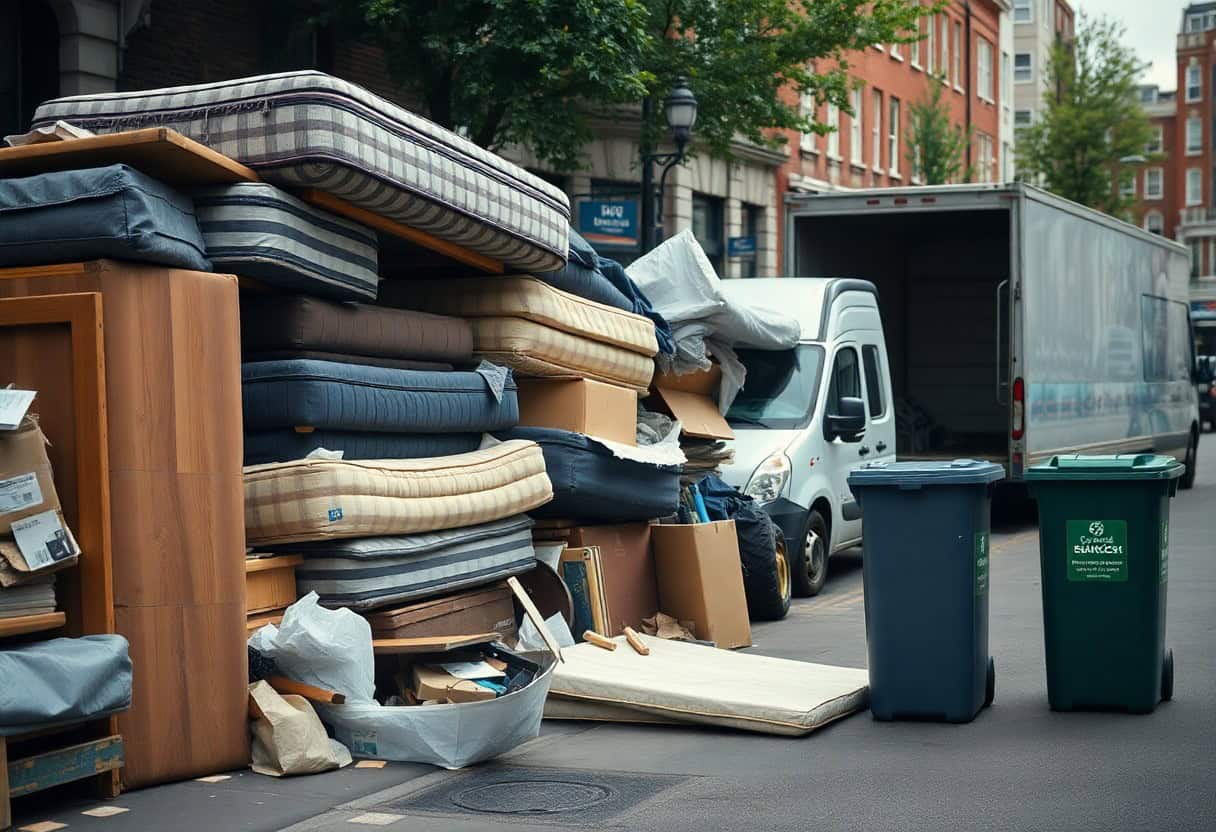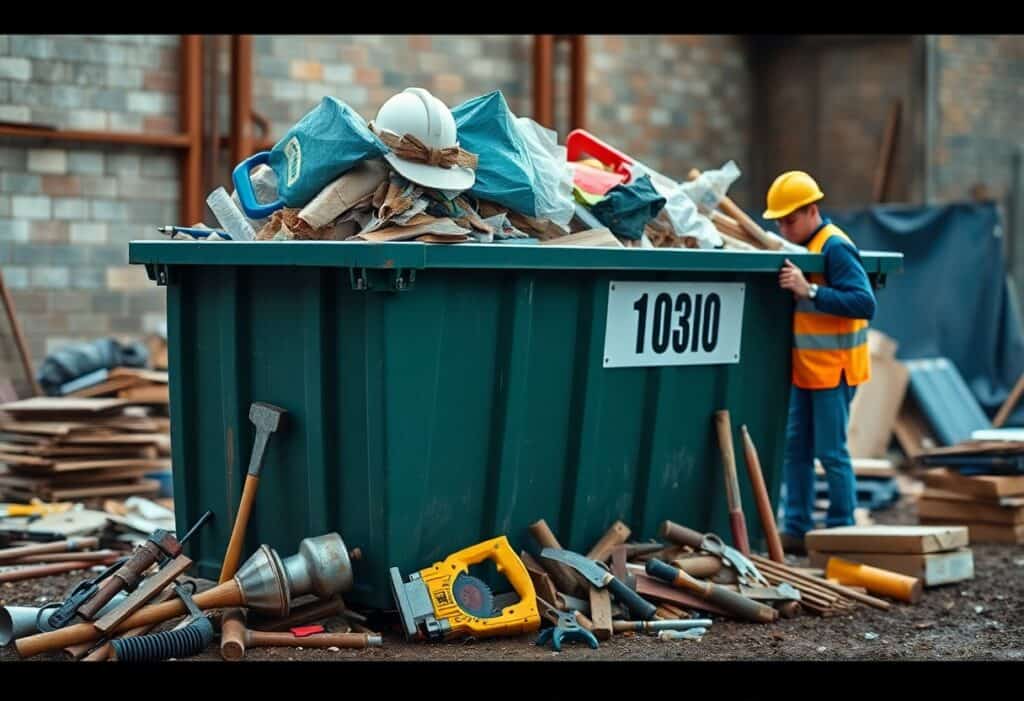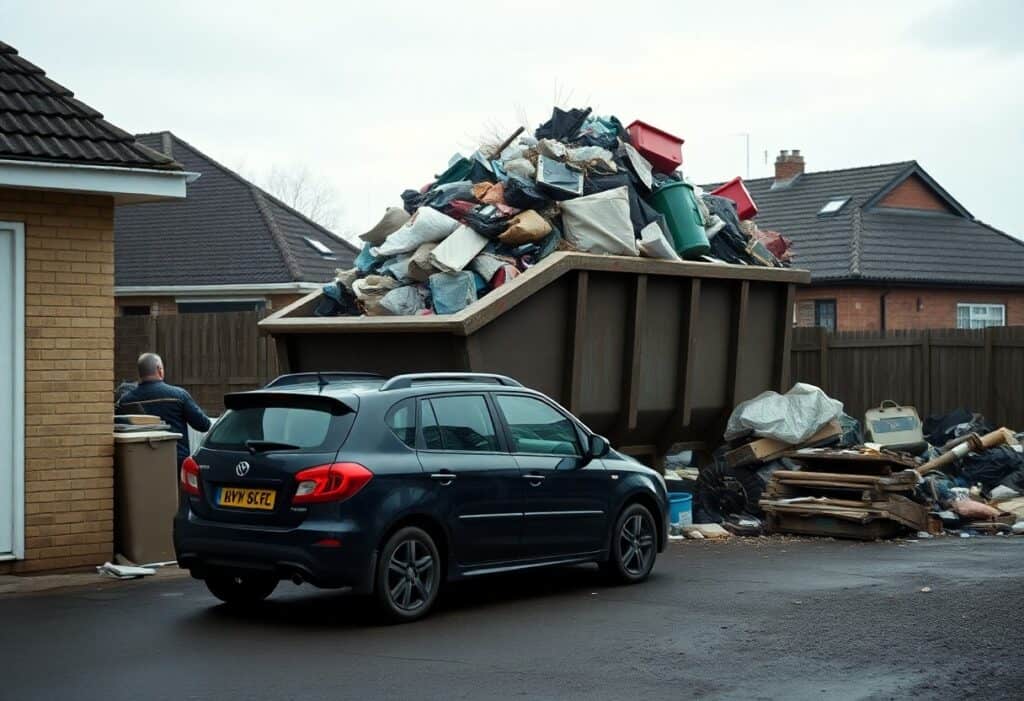Moving can be an exciting yet overwhelming experience, especially when it comes to disposing of bulky waste. You might find yourself faced with unwanted furniture and appliances that are difficult to manage. Properly handling bulky waste not only helps you create a clutter-free environment but also ensures you adhere to local regulations. In this guide, you will discover effective ways to tackle your bulky items, from reusing and recycling to coordinating with waste collection services in London.
Understanding Bulky Waste
As you prepare for your move in London, it’s important to understand bulky waste. This category encompasses items that are too large or heavy to be easily transported in a typical refuse collection. Managing these items appropriately is vital to ensure a smooth transition to your new home, avoiding unnecessary fines or delays.
Definition and Types of Bulky Waste
Bulky waste refers to large items that cannot fit into standard waste bins. Common types include:
- Furniture
- Appliances
- Mattresses
- Carpets
- Garden waste
Perceiving bulky waste correctly will help streamline your moving process.
| Type of Bulky Waste | Examples |
| Furniture | Sofas, tables, chairs |
| Appliances | Fridges, washing machines |
| Mattresses | Bed mattresses |
| Carpets | Rugs, floor coverings |
| Garden waste | Branches, old pots |
Importance of Proper Disposal
You must ensure proper disposal of bulky waste to minimise environmental impact and adhere to local regulations. Improper disposal may lead to fines or damage to your reputation. Knowing where to take your bulky items—whether to a waste centre, for recycling, or arranging a collection—facilitates a smoother moving experience.
Importance lies in the fact that proper disposal of bulky waste keeps our environment clean and lessens the risk of hazardous materials seeping into water sources or harming wildlife. By following disposal regulations, you also contribute to neighbourhood aesthetics and community health. Additionally, recycling some items can have positive impacts on reducing landfill strain and conserving resources. Overall, this careful management demonstrates your commitment to sustainability and community wellbeing.
How to Assess Your Bulky Waste Needs
There’s a significant amount of planning involved in assessing your bulky waste needs when moving in London. Start by identifying the items that you no longer require, which can often accumulate over the years. Be thorough in your evaluation as some items might require special handling or disposal methods. This initial assessment will guide you in determining how best to manage your unwanted belongings.
Evaluating Items for Movers
Evaluating your items is key to a smoother moving process. Take an inventory of furniture, appliances, and any other oversized goods. Consider whether these items are worth selling, dismantling, or donating. The more you simplify your move, the less stress you will face on moving day. Thou will find it easier to focus on the imperatives once you have made these evaluations.
Identifying Size and Weight Factors
Any bulky items often come with size and weight challenges that can affect your moving strategy. Assess the dimensions of your furniture and check if it requires special handling, especially for heavy items like sofas or refrigerators. Consider the access points at your current and new address: narrow doorways or stairs may complicate the moving process. For comfort and safety, it’s wise to consult with professionals for larger pieces. Thou should be aware of the potential risks involved in handling such items.
Assess the size of your items and understand their weight when preparing for your move. This information is imperative to ensure safe transportation; for example, a large sofa might need a van, while smaller pieces could fit in your car. Take into account the fragility of certain items, as well as any special requirements for handling them. Keep in mind the potential liability issues that may arise while managing heavy items. Thou will be better equipped to handle your move once these factors are identified.
Tips for Preparing Bulky Waste for Removal
Assuming you have sorted your unnecessary items, it’s necessary to prepare your bulky waste efficiently. Consider the following tips:
- Check local regulations for disposal
- Disassemble larger items when possible
- Clean items to enhance recycling chances
- Secure loose parts to prevent damage
The more organised you are, the easier the removal process will be.
Categorizing and Sorting Items
On tackling bulky waste, categorising your items into groups can simplify the removal process significantly. By sorting them into recyclables, donatables, and general waste, you can ensure that each item is disposed of responsibly.
Proper Packaging Techniques
Items that are being prepared for disposal need to be packaged appropriately for transport. This involves using the right materials to ensure that your bulky waste does not pose a hazard during removal or damage other items.
The more stable the packaging, the less likely items will shift or break. Use sturdy boxes for smaller components and wrap fragile items in bubble wrap or blankets. Secure sharp edges and heavy items properly to prevent accidents and ensure safe handling. Always label boxes clearly to help the removal team understand contents, and avoid packing hazardous materials like chemicals or batteries with general waste, as they require specialised disposal methods.
Disposal Options for Bulky Waste in London
For residents in London, disposing of bulky waste can be a daunting task. However, you can simplify the process by exploring options such as hiring a professional service. One great option is the Domestic Bulky Waste & Collection Removal London, which can help you efficiently manage your unwanted items.
Council Services and Regulations
Services provided by local councils often include free or low-cost bulky waste collection. Each council has specific regulations regarding the types of items they will collect and the frequency of pickups. It’s important to check with your local council for guidelines to avoid any penalties or additional fees.
Alternative Disposal Methods
Council options are not your only choice for bulky waste disposal. Consider donating items in good condition to charities, which not only benefits others but also promotes sustainable practices. You can also explore local recycling centres that accept bulky items. If you need to dispose of hazardous materials, use specialised collection services, as improper disposal can have serious environmental implications.
The availability of alternative disposal methods can greatly assist you in managing bulky waste responsibly. Many charities gladly accept items like furniture and appliances in working condition, making it a positive solution for both you and the community. For items that may contain harmful materials, such as electronics, always seek advice on safe disposal to protect both your health and the environment. By utilising these options, you minimise waste and contribute to a more sustainable London.
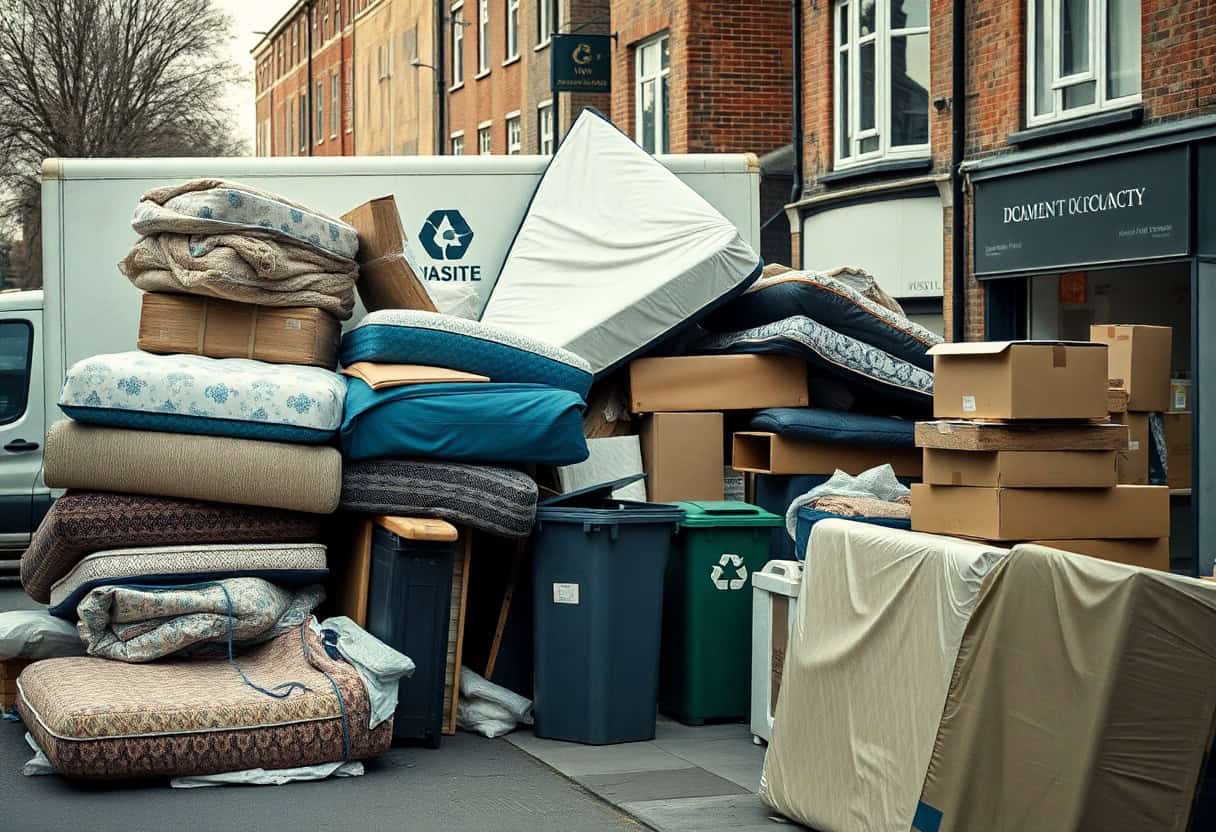
Cost Considerations for Bulky Waste Disposal
To effectively manage bulky waste when moving in London, you must consider the bulky waste collections available to you. Understanding the costs involved can help prevent any unexpected surprises. Different council services and private companies may offer varying rates, so it’s wise to shop around to find an option that fits your budget.
Potential Fees and Charges
Cost considerations for bulky waste disposal often come with specific fees and charges. Many councils impose a fee for the collection and disposal of bulky items, which can vary significantly based on the type and volume of waste. Assessing these potential fees ahead of time will aid in your planning.
Budgeting for Removal Services
Some key factors contribute to your overall budget for removal services. You should account for the collection fees, potential additional charges for extra items, and any payment for private removers if choosing that route. Securing quotes in advance allows you to compare different services and stay within your budget while ensuring efficient waste management.
It’s advisable to assess all costs associated with bulky waste removal, including any incidental expenses that may arise during the process. Additionally, consider the value of your time and effort; hiring a professional service could save you the hassle and ensure a smoother transition during your move. Ultimately, budgeting effectively allows for a more organised and stress-free relocation experience.
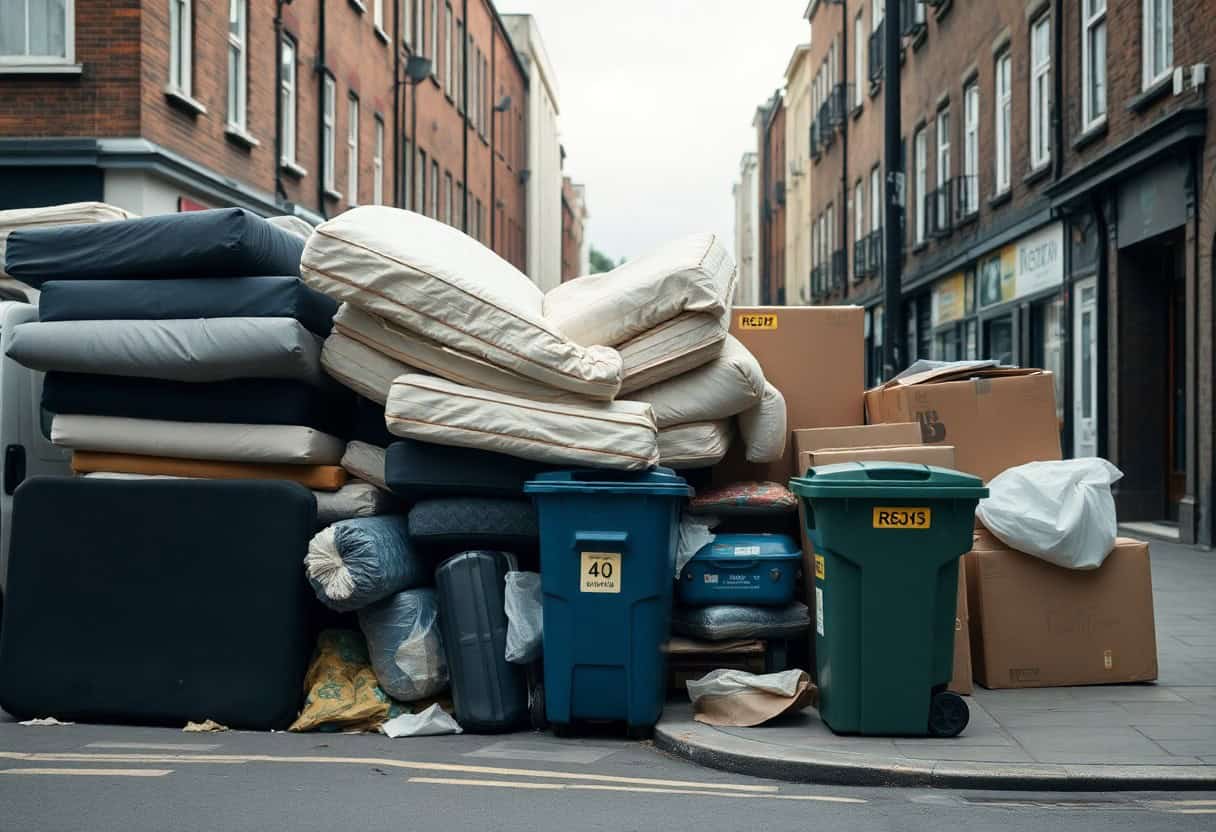
Eco-Friendly Disposal Practices
Your move can be an opportunity to dispose of items responsibly. Utilise Bulky Waste Collection Services – London to ensure your unwanted items are handled in an environmentally friendly manner. These services often prioritise recycling and proper disposal, reducing landfill waste and promoting sustainable practices.
Recycling and Upcycling Options
One way to minimise waste during your move is by exploring recycling and upcycling options for your bulky items. Many local facilities offer recycling programmes where you can drop off your unwanted furniture or appliances, ensuring they are repurposed rather than discarded.
Donation Services
Disposal of items doesn’t have to mean throwing them away; consider donation services as a viable option. Many charities and organisations will gladly accept your unwanted furniture and household items, providing them to those in need while promoting a sustainable approach to waste.
This option not only benefits your local community but also contributes to environmental sustainability. Items in good condition, such as furniture, clothing, and electronics, can significantly aid those less fortunate. Ensure that your donations meet the required standards for acceptance, as some organisations may have specific guidelines. By choosing to donate, you’re making a positive impact while also reducing the amount of bulky waste that ends up in landfills. Embrace donation services to give your items a new lease on life and support your community.
Final Words
Ultimately, effectively handling bulky waste when moving in London requires careful planning and consideration. You should explore local council services for waste disposal, consider hiring a reputable removal company, or utilise skip hire services to manage large items. Always ensure you comply with local regulations to avoid fines. By taking these steps, you can simplify your moving process and contribute to a cleaner environment, allowing you to focus on settling into your new home.
FAQ
Q: What constitutes bulky waste when I’m moving in London?
A: Bulky waste refers to large items that cannot be easily disposed of in your regular rubbish bins. This can include furniture such as sofas, mattresses, wardrobes, and large appliances like fridges or washing machines. When moving, it’s important to identify which of your items fall into this category to manage them appropriately.
Q: How can I dispose of bulky waste in London?
A: There are several options for disposing of bulky waste in London. You can book a collection with your local council, which typically offers this service for a fee. Alternatively, you may choose to hire a skip for larger amounts of waste. Some charities also accept donations of usable furniture or appliances, so consider contacting them before disposal.
Q: Are there any fees associated with bulky waste collections in London?
A: Yes, most local councils in London charge a fee for bulky waste collections. The costs can vary depending on the council and the number of items you need to dispose of. It’s advisable to check your local council’s website for specific pricing and guidelines regarding bulky waste collection services.
Q: Can I leave bulky waste on the street for collection?
A: It is not advisable to leave bulky waste on the street without prior arrangement, as this can be considered illegal dumping, which may result in fines. Always contact your local council to schedule a collection time or review any guidelines on placing bulky waste for collection to avoid potential penalties.
Q: What should I do if my bulky items are still in good condition?
A: If your bulky items are in good condition, consider donating them to a local charity or community group that accepts furniture. Many organisations offer free collection services for such items. This not only helps others in need but also reduces waste and supports sustainable practices.

